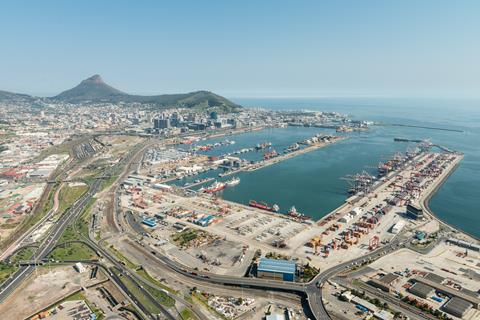Improvements at ports are expected but this may come too late in the stonefruit season
Disruptions at South African container ports, especially in Cape Town, will again be an issue during the coming South African stonefruit export season, Hortgro has warned.

Other export sectors such as table grapes, including Namibia, as well as early shipments of South African apples and pears, will also be affected.
At the same time, representatives of the table grape sector will meet with stakeholders in Spain this week to brief them on the new table grape logistics model, which is aimed at smoothing out the pressure on ports and alleviating logistics problems.
In Namibia, the table grape industry previously announced its intention to increase container shipments through the port of Walvis Bay. Shipments through this port yielded good results last year and are set to increase during the coming season.
“Although we believe we have reached a turning point, specifically in the Port of Cape Town, regarding the logistical crisis, we foresee another challenging season from a logistical point of view,” said Hortgro’s Jacques du Preez.
“Therefore, growers, exporters, and logistical service providers will once again have to make use of alternative modes of shipping to alleviate the pressure on the Container Terminal, ensuring that fruit is shipped promptly for the servicing of clients, meeting programme deadlines, and ensuring good fruit quality upon arrival.”
Meanwhile, plans are also far advanced to support the industry this year with alternative shipping.
Anlin Shipping said that between the end of November and the middle of March, 17 conventional reefers vessels are scheduled to sale between South Africa and the UK and Europe.
These vessels are expected to carry around 90,000 tonnes of fruit, or the equivalent of 400 reefer containers.
In doing so the pressure on the port of Cape Town will be reduced, giving hope that the container terminal will cope better with the rest of the stonefruit, table grape and early apple and pear exports.
Last year growers in the Western Cape also shipped some of their fruit via ports in the Eastern Cape, but this is an expensive operation with fruit having to be trucked over a distance of close to 1,000km.
Du Preez noted that growers had suffered financially over the past two years, largely due to conditions beyond their direct control, with many, unfortunately, going out of business because of the financial impact of logistical problems.
“However, there is a light at the end of the tunnel, though it will take 8 to 12 months for the plans and actions already undertaken by Transnet to filter down to ground and orchard level,” he said.
”As such, alternative shipping methods, such as using specialised reefer vessels and other ports, will again need to be utilised from December 2024 to April 2025.”
This comes with added costs, he confirmed, but unfortunately will have to form part of the strategy to mitigate risk.
The additional costs must be weighed against the inability to get fruit to the markets in time and the potential for quality claims.
The South African stonefruit season will pick up steam this month, with Namibian growers starting their harvest early next month, and Orange River Grape growers starting packing towards the end of November.
The Western Cape grape season will kick of in December, while the first apples and pears will be packed from early January.



